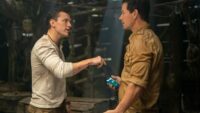In a key middle scene of festival darling Strawberry Mansion, a suited and dour tax auditor of a very unique variety (more on that in a moment), becomes a little frazzled while sharing a home-cooked dinner provided to him by his host and announces the abrupt line of “I think I’m losing my mind.” Without missing a beat, the eccentric senior woman seated across from him replies, “It’s about time,” and raises her wine glass in toast. When he continues with, “There’s something I don’t understand,” she cracks back again with “I’m glad to hear it.”
That exchange is one of few that typifies the giddy hospitality and the bizarre allure of Strawberry Mansion from the writing and directing team of Kentucker Audley and Albert Birney. The movie extends a coy and welcome hand to join its descent into weirdness while still spinning plenty of heady oddities to rattle cages of normal sensibilities. Go ahead and take this movie’s leap into the surreal. You may just like what you find.
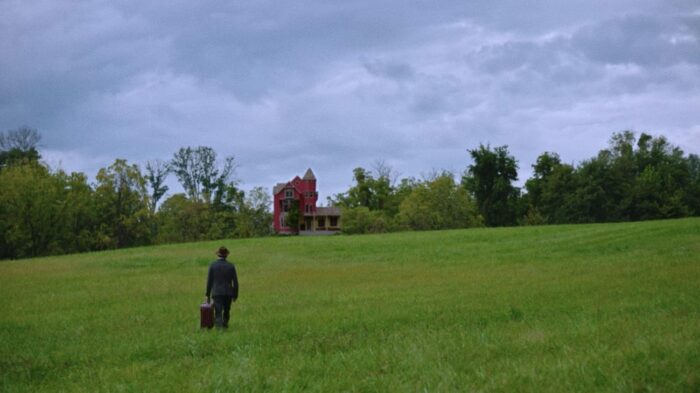
Bring it back to that dinner table. The clincher of the conversation follows next when the woman asks, “Are you enjoying my dreams?” That’s where the audacious premise of Strawberry Mansion adds hazy complications to everything you’re watching. The year is 2035 and dreams are no longer fully owned by the individual. They are infused with product placements and taxed for their lavish details, right down to the types of flora and the quality of the weather. Everyone is subject to this government involvement and its expensive tariffs.
Pause for a moment to consider this whole fictionalized environment. How elaborate are the heights of your nightly dreams? How much would it cost to put on that show, so to speak? Within the parameters framed by Strawberry Mansion, do you believe that your dreams are exclusively your own? Imagine having an observer there, property determined by other means, or content pumped in against your will. Through it all, how much do your dreams linger and reverberate in real life when you’re awake?
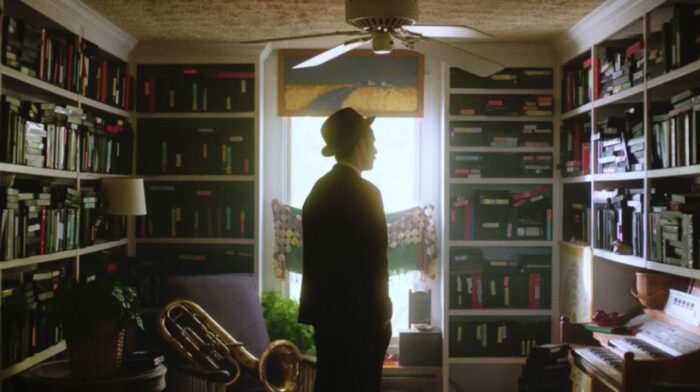
That traveling auditor and low-rent G-man is the diligent James Preble (Audley himself, known best for V/H/S and Sun Don’t Shine), and he’s been assigned to investigate Arabella Isadora (longtime TV actress Penny Fuller) at her creaky yet idyllic country house. The very bohemian artist type and self-proclaimed “atmosphere creator” has been living off the grid without the mandatory modern documentation equipment and has used her own unsanctioned inventions to duck the government oversight. Preble arrives to find thousands of antiquated VHS tapes and a mountain of work and questions.
We all likely know a parent or grandparent that clings to their non-smart cell phone or still owns some seemingly indestructible half-ton appliance that’s still kicking after multiple decades. The rest of us cycle through replacements of cheaper-made modern amenities with higher price tags in hopes of staying current. Those folks that don’t upgrade, like Arabella in this movie, are likely resigned to the fact or are comfortable with being left behind the times and probably welcome the inaccessibility. That said, when their tech malfunctions, they, as people, might get glitchy too. Fuller’s performance has that quizzical flair to enjoy.
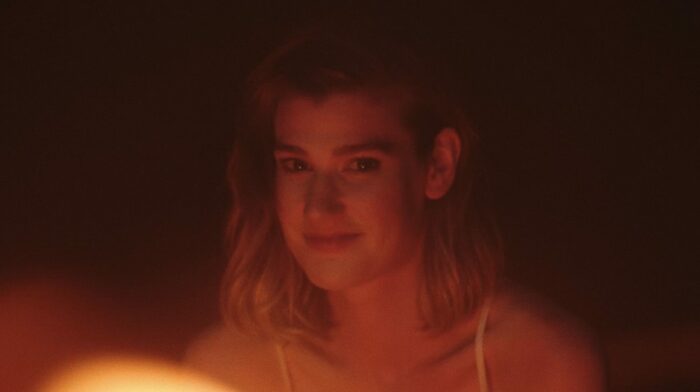
In culling through the hours of footage as a phased-in observer, James becomes intrigued by Arabella’s younger self (the fetching Grace Glowicki of Tito and Her Friend Adam) and starts to see lingering images of her and her dreamscapes when he’s unplugged around her older self. That’s where you get Arabella asking that very immodest question of enjoyment to James. Moreover, when Arabella introduces her homemade helmet that blocks the government’s inclusions, James’s mind is blown away further when he begins to experience his own slumbering fantasies unfiltered.
Being around the younger and older Arabella challenges James’s conformity. Both guises ask “Dream with me,” and aim to free James from his employed rut and monotonous life. Calling back to earlier, would you be willing to openly share your dreams as Arabella does? What if you are more than a fly on the wall and become an active participant in other people’s private reveries? That’s the enveloping swerve of Strawberry Mansion that could play any number of ways and does.
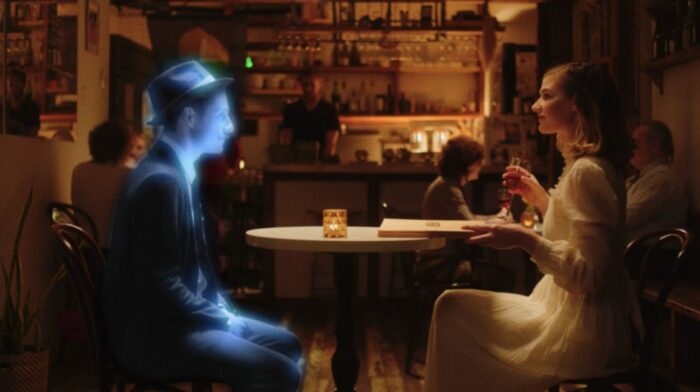
All of the hallucinated looseness of this science fiction fantasy film is reinforced by a wild and untethered production value hashed out by Audley and Birney (Silvio). Low-tech props, intentional grainy filtering from debuting cinematographer Tyler Davis, and a combination of small-scale and old school visual effects techniques from the team supervised by Catherine Tate (who cut her teeth working in 90s/00s blockbusters like Minority Report and Men in Black) give Strawberry Mansion an enchanting feel. Synthesizer specialist Dan Deacon, whose work will soon be featured in the upcoming Adam Sandler flick Hustle, provides an awesome and wicked score that amplifies the unearthly mood swings.
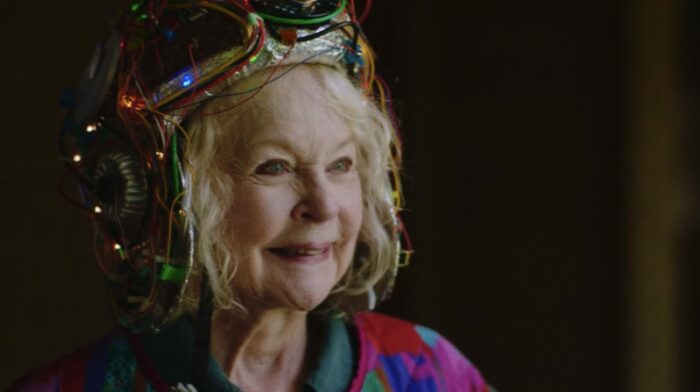
Strawberry Mansion isn’t a heap of quirky stuff thrown together for the sake of randomness. There’s sly symbolism all over this movie that one could study for days. For example, the high use of pink in the production design of emerging set dresser Becca Morin (The Art of Self-Defense) plays right into the dream theories out there which match the softened red color with observation, affection, generosity, innocence, and other triggers and traits.
Two-thirds of Strawberry Mansion occupies this bewitching vibe and you find yourself wanting more and more of it. What began as ethereal and sweet takes a turn down a horrific and bewildering path in the second act compared to where it was before. Notwithstanding the fact Strawberry Mansion is about the peculiarity of dreams, vagueness and obscurity grow to fester and cloud this movie to a degree, which could lose some viewers. Adjustment and recovery do arrive to massage those fears and regain the momentum and spirit of it all. Even with that risky deviation, the fanciful softness makes it very easy to fall in love with the menagerie on display.



